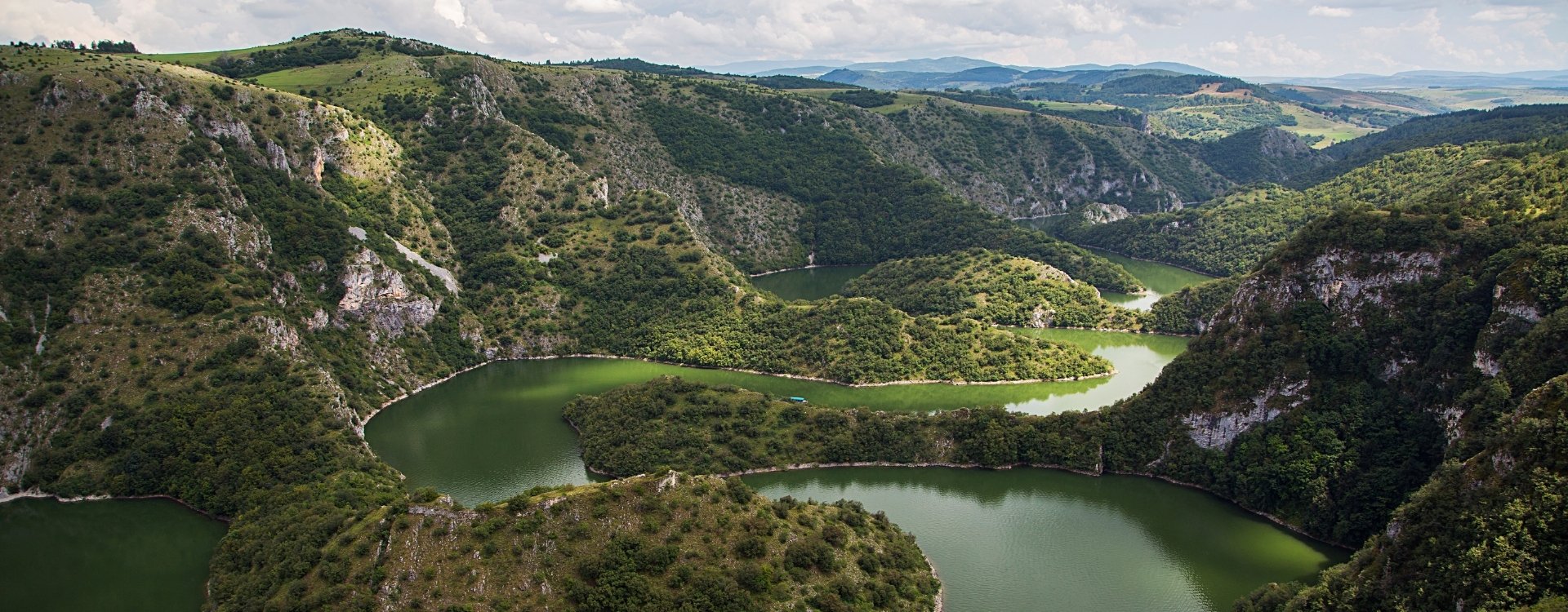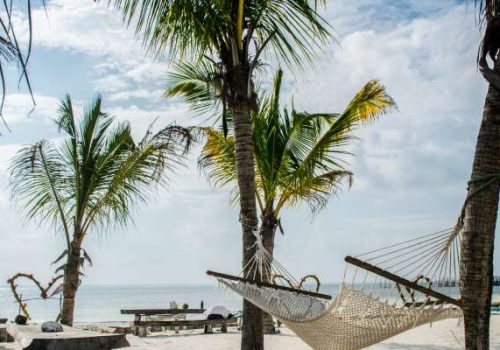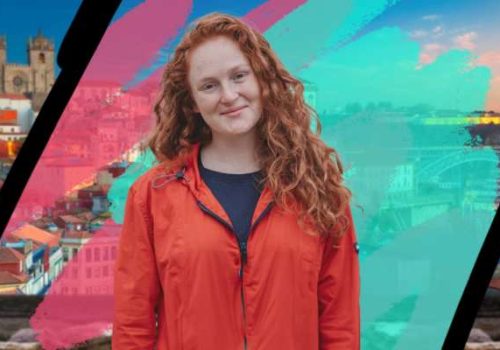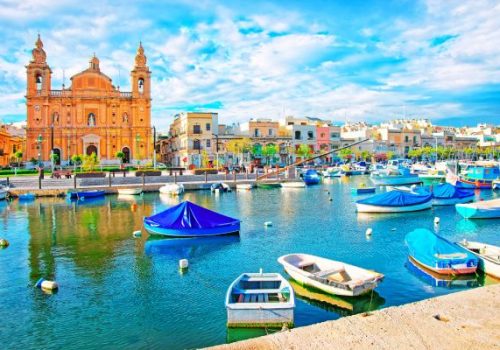Living and working in Serbia
Serbia, nestled in the heart of the Balkans, is a country rich in history, culture, and natural beauty. Known for its warm hospitality, vibrant cities, and affordable cost of living, Serbia is becoming an increasingly attractive destination for expats. Whether you’re drawn by the dynamic job market, the thriving tech industry, or the relaxed Mediterranean-like lifestyle, Serbia offers a unique experience. This guide covers everything you need to know about living and working in Serbia, from employment opportunities and salaries to accommodation and daily life.
Latest jobs in Serbia
Unfortunately, we do not have any vacancies that match this search. Below are some of our most popular jobs!
- Adventure jobs, Hotel jobs, Tourism
- Bulgaria, Croatia, Egypt, Greece, Italy, Spain, Turkey
- Customer support
- Malta
Working in Serbia
Working Conditions in Serbia
Serbia offers a dynamic and evolving work environment. The standard workweek is 40 hours, typically from 9 am to 5 pm, Monday through Friday. Employees are entitled to 20 days of paid annual leave, along with 11 public holidays. Labor laws ensure fair treatment, with a focus on protecting employee rights, including regulated overtime pay.
While Serbian workplaces traditionally followed a hierarchical structure, modern companies, especially in the IT and tech sectors, are adopting flexible hours, remote work options, and more casual workplace cultures. English is widely used in international companies, though proficiency in Serbian is beneficial for expats seeking to integrate fully into the local job market.
The work culture in Serbia emphasizes punctuality, teamwork, and relationship-building. Networking and personal connections play a crucial role in professional success, particularly in industries like business and media.
Job Opportunities in Serbia
Serbia’s economy is diverse, with opportunities in IT, agriculture, manufacturing, education, healthcare, and tourism. Belgrade, the capital, is the economic hub, while cities like Novi Sad, Niš, and Kragujevac offer growing job markets.
The IT sector is one of Serbia’s fastest-growing industries, often referred to as the “Silicon Valley of the Balkans.” Expats with expertise in software development, data analysis, and cybersecurity are in high demand. Companies like Microsoft, NCR, and local start-ups offer competitive roles for skilled professionals.
Serbia’s manufacturing and industrial sectors remain significant, particularly in automotive production, textiles, and food processing. The agriculture industry, a vital part of the Serbian economy, offers opportunities in management, research, and export-focused roles.
For English-speaking expats, the education sector provides opportunities in international schools and language academies. Additionally, private healthcare facilities frequently seek foreign-trained medical professionals.
Networking is essential for job hunting in Serbia. Platforms like LinkedIn, local job portals such as Poslovi.rs, and expat communities can be valuable resources for finding employment.
Salaries in Serbia
Salaries in Serbia are relatively modest compared to Western Europe but competitive within the region. The average monthly gross salary is approximately 90,000 RSD (€770), though earnings vary significantly by industry and expertise.
- IT professionals and engineers can earn between 150,000 and 300,000 RSD (€1,300–€2,600) per month.
- Finance and consulting roles typically offer salaries of 120,000 to 200,000 RSD (€1,000–€1,700).
- Customer service and administrative positions pay around 70,000 to 100,000 RSD (€600–€850).
While salaries may seem lower than in Western Europe, Serbia’s low cost of living ensures that residents can enjoy a comfortable lifestyle.
Income Tax in Serbia
Serbia has a flat income tax rate of 10%, making it one of the most favorable tax regimes in Europe. Employees also contribute to social security, healthcare, and unemployment benefits, with deductions totaling approximately 19% of gross income.
Expats working in Serbia must register with the Tax Administration of Serbia and may need to file annual tax returns. Double taxation agreements with many countries help ensure expats are not taxed twice on the same income.
Working Culture in Serbia
Serbian working culture is a blend of professionalism and personal connection. While punctuality and efficiency are valued, building relationships and trust with colleagues is equally important. Meetings often begin with informal conversations, reflecting Serbia’s hospitable and approachable nature.
The IT and tech sectors are adopting modern work practices, including flexible hours and remote work. In contrast, traditional industries like manufacturing maintain more formal and structured environments. Networking is critical, as many opportunities arise through personal connections and recommendations.

Living in Serbia
Benefits of Living and Working in Serbia
Living in Serbia offers an exceptional quality of life, with a low cost of living, delicious cuisine, and a vibrant cultural scene. The country is known for its hospitality and warmth, making it easy for expats to feel at home. Serbia’s central location in Europe provides easy access to neighboring countries like Hungary, Croatia, and Bulgaria, making it an excellent base for exploring the Balkans.
Serbia’s healthcare system and public services are affordable, and the country has a thriving expat community, particularly in cities like Belgrade and Novi Sad. Whether you’re drawn to the lively nightlife, historic landmarks, or serene countryside, Serbia offers something for everyone.
Accommodation in Serbia
Finding accommodation in Serbia is straightforward, with options ranging from modern apartments to traditional homes. A one-bedroom apartment in Belgrade’s city center costs between 30,000 and 60,000 RSD (€260–€520) per month, while similar apartments in suburban areas cost around 20,000 to 40,000 RSD (€170–€340).
Shared apartments are common among students and young professionals, with costs starting at 15,000 RSD (€130) per person. Utilities, including electricity, heating, and water, typically add 8,000 to 12,000 RSD (€70–€100) per month.
Expats often use platforms like Halo Oglasi or work with local real estate agents to find suitable housing. Landlords typically require a deposit equal to one month’s rent.
Cost of Living in Serbia
Serbia is one of Europe’s most affordable countries, allowing expats to enjoy a high standard of living on a modest income. Monthly expenses for a single person range from 80,000 to 120,000 RSD (€700–€1,000), depending on lifestyle. Key expenses include:
- Groceries: Monthly grocery bills range from 10,000 to 20,000 RSD (€90–€170), with affordable options at supermarkets like Maxi, Idea, and local markets.
- Dining Out: Eating out is inexpensive, with a meal at a mid-range restaurant costing 1,200 to 2,500 RSD (€10–€22). Serbian dishes like ćevapi and sarma are widely available and highly recommended.
- Public Transport: A monthly pass for buses, trams, and trolleys in Belgrade costs 3,500 RSD (€30), making it an economical way to navigate the city.
Where to Live in Serbia
Belgrade, the capital, is the most popular choice for expats, offering a vibrant cultural scene, diverse dining options, and excellent career opportunities. Neighborhoods like Dorćol, Vračar, and New Belgrade (Novi Beograd) are particularly popular for their mix of modern amenities and accessibility.
Novi Sad, Serbia’s second-largest city, offers a more relaxed lifestyle, with a thriving arts scene and proximity to the picturesque Fruška Gora National Park. Other cities, such as Niš and Kragujevac, provide affordable housing and a slower pace of life, making them attractive for families or retirees.
Public Transport in Serbia
Serbia’s public transport system is reliable and budget-friendly. In cities like Belgrade and Novi Sad, buses, trams, and trolleybuses connect most neighborhoods. A monthly pass costs around 3,500 RSD (€30). Taxis are also affordable, with fares starting at 200 RSD (€1.70).
For intercity travel, Serbia’s train and bus networks are cost-effective, connecting major cities and towns. Belgrade’s Nikola Tesla Airport offers direct flights to numerous European destinations.
Eating in Serbia: Restaurants and Food Costs
Serbia’s cuisine is hearty and flavorful, blending Mediterranean, Turkish, and Balkan influences. Popular dishes include pljeskavica (grilled burger), gibanica (cheese pastry), and ajvar (pepper spread). Dining out is affordable, with casual meals costing around 1,000 to 2,000 RSD (€9–€18).
Local markets like Kalenic Market in Belgrade offer fresh produce, meats, and dairy products at reasonable prices. Serbian coffee culture is strong, with numerous cafés serving traditional Turkish-style coffee for as little as 150 RSD (€1.30).
Serbia’s Nightlife
Serbia’s nightlife is famous across Europe, offering a mix of lively clubs, casual bars, and cultural events. Belgrade’s Splavovi (floating clubs) along the Danube and Sava rivers are iconic, hosting parties that last until dawn. Novi Sad’s nightlife is more laid-back, with a focus on live music and cozy pubs.
Festivals, such as the EXIT Festival in Novi Sad and the Guca Trumpet Festival, showcase Serbia’s love for music and celebration, drawing both locals and tourists.
Weather in Serbia
Serbia experiences a continental climate, with hot summers and cold winters. Summer temperatures range from 25°C to 35°C (77°F to 95°F), while winters often drop to -5°C to -10°C (23°F to 14°F), with snowfall common in mountainous areas.
Spring and autumn are mild and ideal for outdoor activities, such as hiking in the Tara National Park or exploring historic towns like Smederevo and Novi Pazar.
What Not to Miss in Serbia
Serbia is full of cultural and natural treasures. Must-visit landmarks include Kalemegdan Fortress in Belgrade, Studenica Monastery, and the Iron Gates Gorge on the Danube River. Outdoor enthusiasts will love the Tara National Park, Drina River, and Uvac Canyon.
Seasonal events, such as the Belgrade International Film Festival (FEST) and traditional Christmas markets, add to Serbia’s charm. For a taste of local traditions, don’t miss a Serbian village festival or rakija (fruit brandy) tasting.








